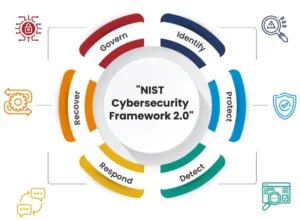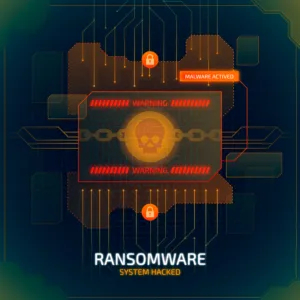
Table of Contents
Introduction
In the realm of cybersecurity threats targeting mobile devices, the resurgence of the Vultur Android Banking Trojan has sent ripples across the digital landscape. This sophisticated malware, known for its nefarious capabilities, has returned with upgraded remote control functionalities, posing grave risks to Android users globally.
In this blog post, we delve into the intricacies of the Vultur Trojan, explore its evolved remote control features, and discuss vital measures to defend against this emerging threat.
Unveiling Vultur Android Banking Trojan
Vultur is a potent banking trojan designed to infiltrate Android devices, primarily through malicious apps and phishing campaigns. Once installed, Vultur operates stealthily, aiming to harvest sensitive information such as banking credentials, credit card details, and personal data from unsuspecting victims. This trojan has resurfaced with enhanced remote control capabilities, enabling attackers to exert greater command and control over compromised devices.
Modus Operandi and Infection Vectors
Vultur Android Banking Trojan typically spreads through deceptive methods, including:
– Malicious Apps: Disguised as legitimate applications, Vultur-infected apps often mimic popular services or games to lure users into downloading and installing them.
– Phishing Campaigns: Users may receive phishing emails or messages containing links to download malicious apps that deploy Vultur upon installation.
– Third-Party App Stores: Unofficial app stores or websites hosting pirated apps are common distribution channels for Vultur and similar malware.
Once installed, Vultur establishes persistence on the device, evades detection by security software, and commences its insidious activities under the radar.
Enhanced Remote Control Capabilities
The latest iteration of Vultur Android Banking Trojan introduces advanced remote control features, empowering attackers with unprecedented access and control over compromised devices.
Some key capabilities include:
1. Command Execution
The upgraded Vultur Trojan allows attackers to remotely execute commands on infected devices. This capability enables threat actors to perform a range of malicious activities, from stealing data to manipulating device settings.
2. Data Exfiltration
Vultur can now exfiltrate sensitive data more efficiently. Attackers can remotely retrieve stolen information, including credentials and financial data, from compromised devices.
3. Device Manipulation
With enhanced remote control, Vultur can manipulate device functionalities remotely. This includes sending SMS messages, making unauthorized calls, or initiating transactions without user consent.
4. Surveillance and Monitoring
Vultur can silently surveil and monitor device activities, such as capturing keystrokes, recording screen interactions, and accessing microphone and camera functionalities—compromising user privacy profoundly.
Implications and Risks
The resurgence of Vultur Android Banking Trojan with upgraded remote control capabilities amplifies the risks faced by Android users:
– Financial Loss: Compromised banking credentials can lead to unauthorized transactions and financial losses.
– Identity Theft: Stolen personal data can be exploited for identity theft and fraudulent activities.
– Privacy Invasion: Remote surveillance capabilities jeopardize user privacy, potentially exposing sensitive information and compromising personal security.
Defending Against Vultur Android Banking Trojan
To mitigate the risks posed by the Vultur Android Banking Trojan and similar threats, implement robust cybersecurity measures:
1. Install Apps from Trusted Sources
Only download and install apps from app stores like Google Play Store. Avoid sideloading apps from unknown sources to reduce the risk of installing malicious software.
2. Keep Software Updated
Regularly update your Android operating system and apps to patch security vulnerabilities and defend against exploitation by trojans like Vultur.
3. Use Mobile Security Solutions
Deploy reputable mobile security solutions that can detect and block malicious apps, including banking trojans like Vultur.
4. Enable App Permissions Carefully
Review and manage app permissions carefully. Avoid granting unnecessary permissions that could be exploited by malware to compromise your device.
5. Practice Vigilance Against Phishing
Remain cautious of unsolicited emails, messages, or links. Verify the authenticity of sources before clicking on links or downloading attachments to prevent phishing attacks.
6. Implement Device Encryption and Screen Lock
Enable device encryption and use strong screen lock methods (PIN, password, or biometric) to secure your device and data against unauthorized access.
Conclusion
The resurgence of the Vultur Android Banking Trojan with upgraded remote control capabilities underscores the evolving landscape of mobile threats. Android users must remain vigilant and adopt proactive cybersecurity practices to defend against sophisticated malware like Vultur. By staying informed, practicing caution, and implementing robust security measures, individuals and organizations can mitigate the risks posed by banking trojans and safeguard their digital assets effectively. Let’s prioritize mobile security to navigate the digital landscape with resilience and confidence.
In summary, the emergence of Vultur Android Banking Trojan with enhanced remote control functionalities highlights the critical need for proactive defense strategies and user awareness in combating evolving mobile threats. Stay secure, stay vigilant!
FAQ (Frequently Asked Questions)
1. What is the Vultur Android Banking Trojan?
The Vultur Android Banking Trojan is a sophisticated malware designed to infiltrate Android devices, primarily targeting users through malicious apps and phishing campaigns. Once installed, Vultur aims to steal sensitive information such as banking credentials, credit card details, and personal data.
2. What are the key features of the upgraded Vultur Trojan with enhanced remote control capabilities?
The upgraded version of the Vultur Trojan introduces advanced remote control functionalities, allowing attackers to:
– Execute commands remotely on infected devices.
– Exfiltrate sensitive data more efficiently.
– Manipulate device settings and functionalities.
– Conduct surveillance activities including keystroke logging and screen recording.
3. How does Vultur infect Android devices?
Vultur typically infects Android devices through:
– Malicious apps: Fake or repackaged apps distributed through unofficial sources or third-party app stores.
– Phishing campaigns: Deceptive emails, messages, or links that prompt users to download and install malicious apps.
– Drive-by downloads: Automatic installation of malware when visiting compromised websites.
4. What risks does Vultur pose to Android users?
Vultur poses several risks to Android users, including:
– Financial loss due to unauthorized transactions using stolen banking credentials.
– Identity theft through the theft of personal and financial information.
– Privacy invasion through remote surveillance capabilities like keystroke logging and screen recording.
5. How can I protect my Android device from Vultur Trojan?
To protect your Android device from Vultur and similar threats, consider the following security measures:
– Download and install apps only from trusted sources like the Google Play Store.
– Keep your Android operating system and apps updated with the latest security patches.
– Use reputable mobile security solutions that can detect and block malicious apps.
– Review and manage app permissions carefully to minimize the risk of exploitation.
– Be cautious of unsolicited emails, messages, or links, and avoid downloading apps from unknown sources.
6. Can Vultur Trojan be removed if my device is infected?
Removing Vultur Trojan from infected devices can be challenging due to its sophisticated nature. Use reputable mobile security software to scan and remove the malware. In some cases, a factory reset of the device may be required to completely eradicate the trojan.
7. How can businesses protect their mobile devices from Vultur Trojan?
Businesses can protect their mobile devices from Vultur Trojan and similar threats by implementing robust cybersecurity measures:
– Implement mobile device management (MDM) solutions to monitor and secure employee devices.
– Educate employees about mobile security best practices and the risks of downloading apps from untrusted sources.
– Enforce security policies such as app whitelisting and device encryption to enhance device security.
8. What should I do if I suspect my Android device is infected with Vultur Trojan?
If you suspect your Android device is infected with Vultur Trojan, immediately disconnect it from the network to prevent further damage. Use reputable mobile security software to scan and remove the malware. Monitor your device for unusual activities and consider resetting it to factory settings if necessary.
Read more on https://cybertechworld.co.in for insightful cybersecurity related content.




















Thanks for another informative blog. Where else could I get that kind of info written in such a perfect way? I have a project that I am just now working on, and I have been on the look out for such information.
I’m blown away by the quality of this content! The author has clearly put a tremendous amount of effort into exploring and structuring the information. It’s inspiring to come across an article that not only offers valuable information but also keeps the readers engaged from start to finish. Hats off to him for making such a brilliant work!
You are so awesome! I do not believe I’ve truly read something like this before. So nice to discover another person with genuine thoughts on this subject. Seriously.. thanks for starting this up. This web site is something that is required on the internet, someone with a bit of originality.
Next time I read a blog, Hopefully it does not fail me just as much as this one. I mean, I know it was my choice to read through, but I truly thought you would have something useful to talk about. All I hear is a bunch of crying about something you could possibly fix if you weren’t too busy seeking attention.
I was excited to uncover this website. I need to to thank you for ones time for this fantastic read!! I definitely enjoyed every little bit of it and I have you saved as a favorite to check out new information on your blog.